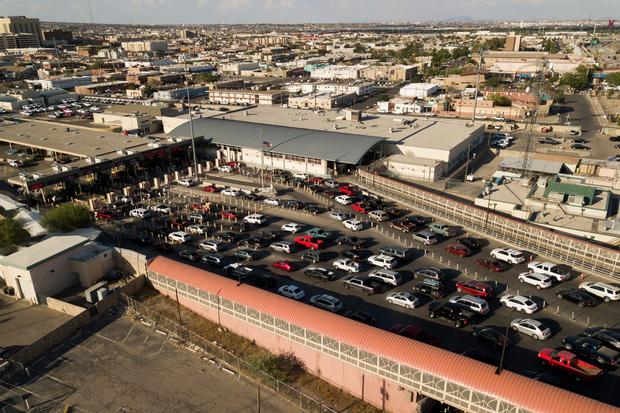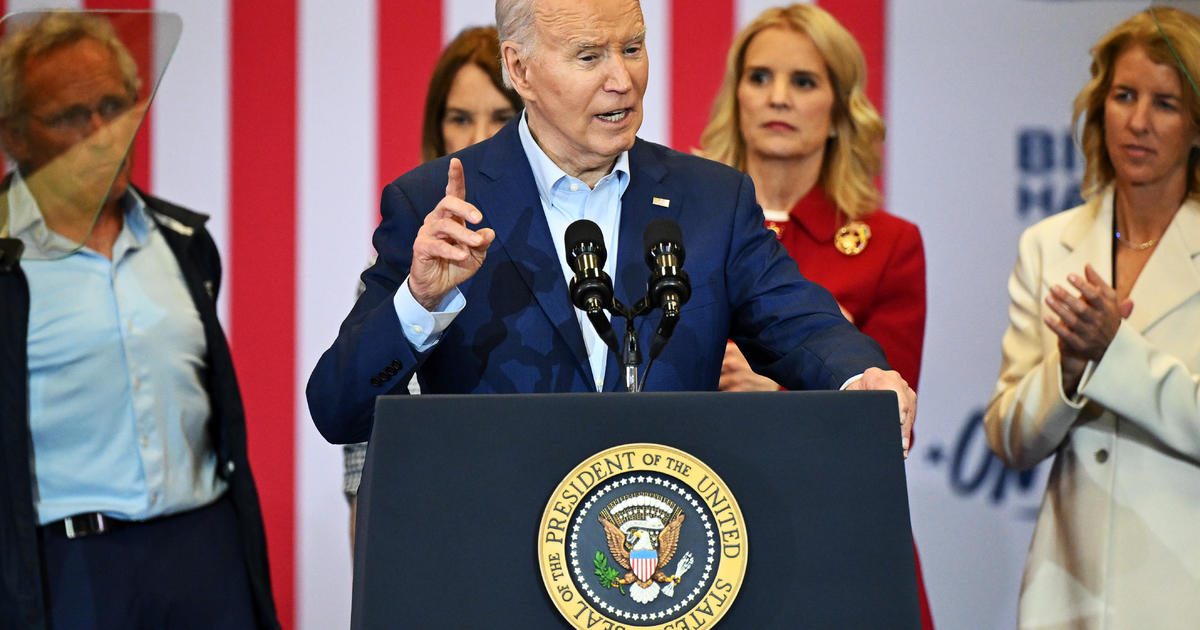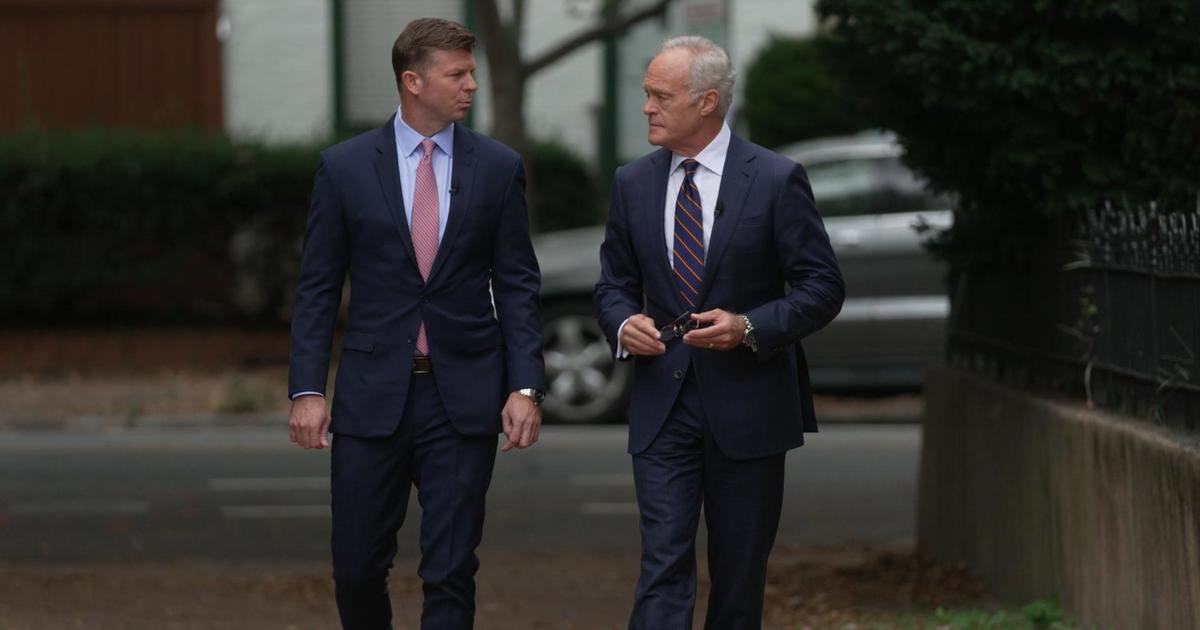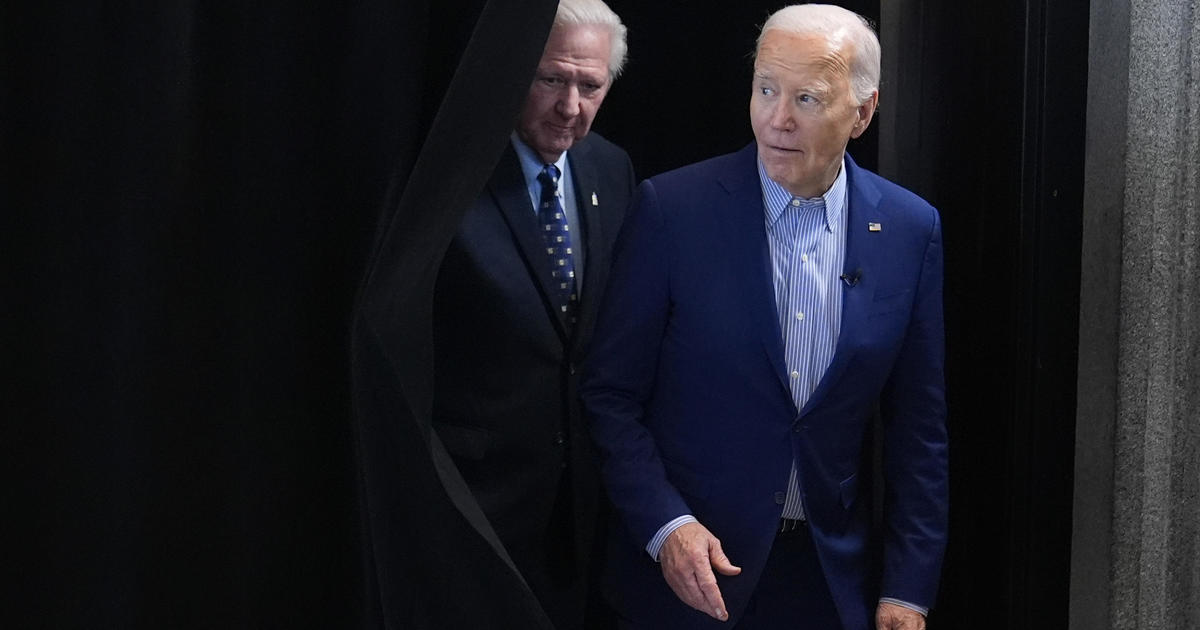U.S. to lift land border restrictions for vaccinated travelers next month
The U.S. government next month will lift pandemic-era travel limits along the Canadian and Mexican borders for travelers who are vaccinated against the coronavirus, allowing them to enter the U.S. for non-essential activities, like tourism and family visits, for the first time since March 2020.
Starting in early November, the Department of Homeland Security will exempt travelers who are fully vaccinated against COVID-19 from the non-essential travel restrictions in place along both U.S. land borders, senior Biden administration officials told reporters during a call Tuesday.
Those who can't provide proof of vaccination will continue to be banned from crossing the land borders if their travel is deemed to be "non-essential." U.S. citizens, green card holders and individuals traveling for medical care have been exempted from the non-essential restrictions since they were instituted.
Starting in January 2022, the U.S. will require all travelers — including those engaging in essential travel, like truck drivers — to show proof of vaccination before entering a land border crossing, the officials said.
"This phased approach will provide ample time for essential travelers such as truckers and others to get vaccinated, enabling a smooth transition to this new system," one administration official said.
U.S. Customs and Border Protection will accept paper or digital proof of vaccination, an official said. The Centers for Disease Control and Prevention has not yet determined which vaccines the U.S. will recognize, the officials added.
Tuesday's announcement is likely to be welcomed by Mexican and Canadian travelers, as well as U.S. border community leaders, who have been urging the Biden administration for months to lift the travel limits, which have hurt local economies that rely on tourism and commerce.
"There's been a lot of struggle in the community because of the closure, not just financial struggle but a lot of families who have been separated and a lot of literal emotional hardship," Democratic Congresswoman Veronica Escobar, who represents the Texas border city of El Paso, told CBS News. "This is very welcomed news."
Escobar said the U.S. should also increase the supply of vaccines it is dispatching to Mexico to help border communities like Ciudad Juárez, which borders El Paso, ensure that prospective travelers can take advantage of the new travel policy.
"Our border communities are essentially one community," Escobar added. "So this is a fantastic, long overdue first step and it will be, I know, very well-received by the community."
Last month, the Biden administration announced that immigrants and travelers coming to the U.S. by plane will also have to be fully vaccinated and show proof of a negative COVID-19 test starting in November.
The administration officials stressed that this week's announcement will not affect a separate pandemic-era border policy the U.S. has used to expel migrants and asylum-seekers who don't have legal permission to enter the country.
Citing a public health authority known as Title 42, U.S. border officials have expelled hundreds of thousands of migrants without allowing them to request asylum. To the dismay of advocates and some Democrats, the Biden administration has continued the expulsions, which were first implemented in March 2020 under former President Donald Trump.
Asked if lifting the non-essential travel restrictions undermines the justification for maintaining the Title 42 expulsions, an administration official said the policy considerations are different because migrants are generally held in Border Patrol facilities where social distancing can't be enforced.
"They're not set up for a global pandemic situation," the official said of the migrant holding facilities. "The Title 42 restrictions are really about protecting the migrants themselves, the DHS workforce and local communities."
Citing "current conditions," the official said "there's a strong public health basis" to continue the Title 42 policy.
Fin Gómez contributed to this report.





